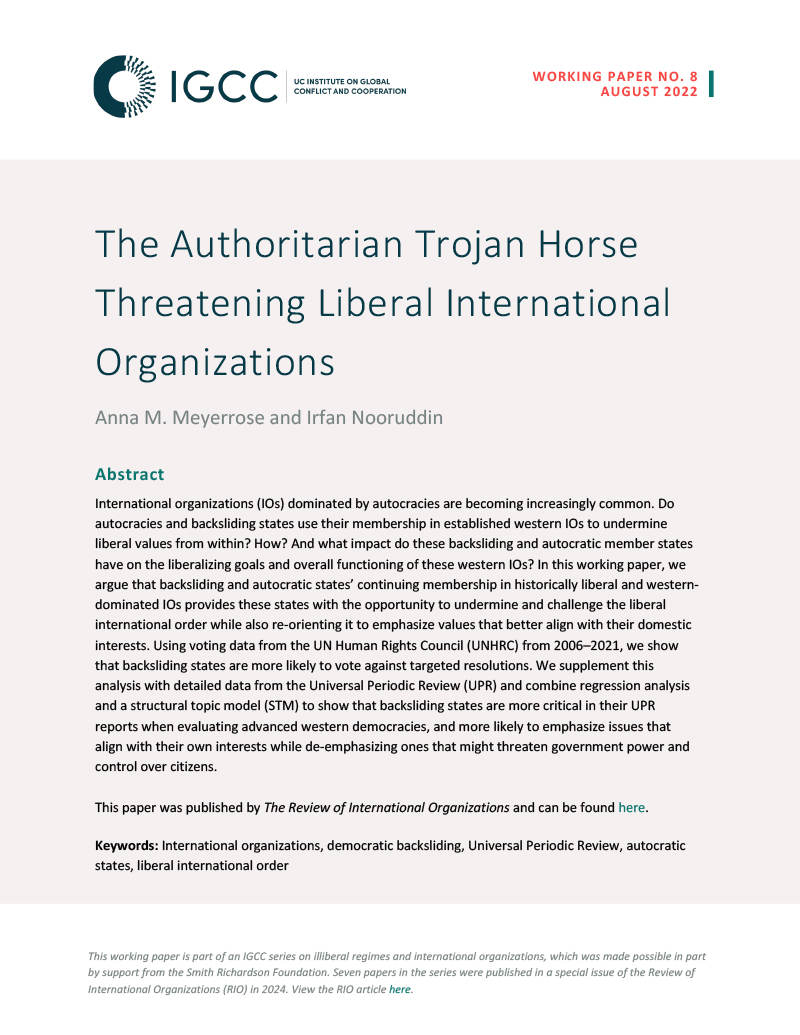The Authoritarian Trojan Horse Threatening Liberal International Organizations

In this working paper, Anna Meyerrose, assistant professor at the School of Politics and Global Studies at Arizona State University, and Irfan Nooruddin, Hamad bin Khalida Al-Thani Professor of Indian politics at the School of Foreign Service at Georgetown University, investigate the impact of authoritarian members of western international organizations.
DownloadInternational organizations (IOs) dominated by autocracies are becoming increasingly common. Do autocracies and backsliding states use their membership in established western IOs to undermine liberal values from within? How? And what impact do these backsliding and autocratic member states have on the liberalizing goals and overall functioning of these western IOs? In this working paper, we argue that backsliding and autocratic states’ continuing membership in historically liberal and western-dominated IOs provides these states with the opportunity to undermine and challenge the liberal international order while also re-orienting it to emphasize values that better align with their domestic interests. Using voting data from the UN Human Rights Council (UNHRC) from 2006–2021, we show that backsliding states are more likely to vote against targeted resolutions. We supplement this analysis with detailed data from the Universal Periodic Review (UPR) and combine regression analysis and a structural topic model (STM) to show that backsliding states are more critical in their UPR reports when evaluating advanced western democracies, and more likely to emphasize issues that align with their own interests while de-emphasizing ones that might threaten government power and control over citizens.
This working paper is part of an IGCC series on illiberal regimes and international organizations, which was made possible in part by support from the Smith Richardson Foundation. Seven papers in the series were published in a special issue of the Review of International Organizations (RIO) in 2024. View the RIO article here.
Thumbnail credit: SFT HQ